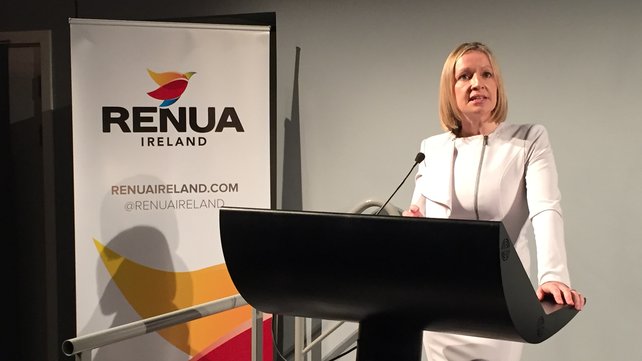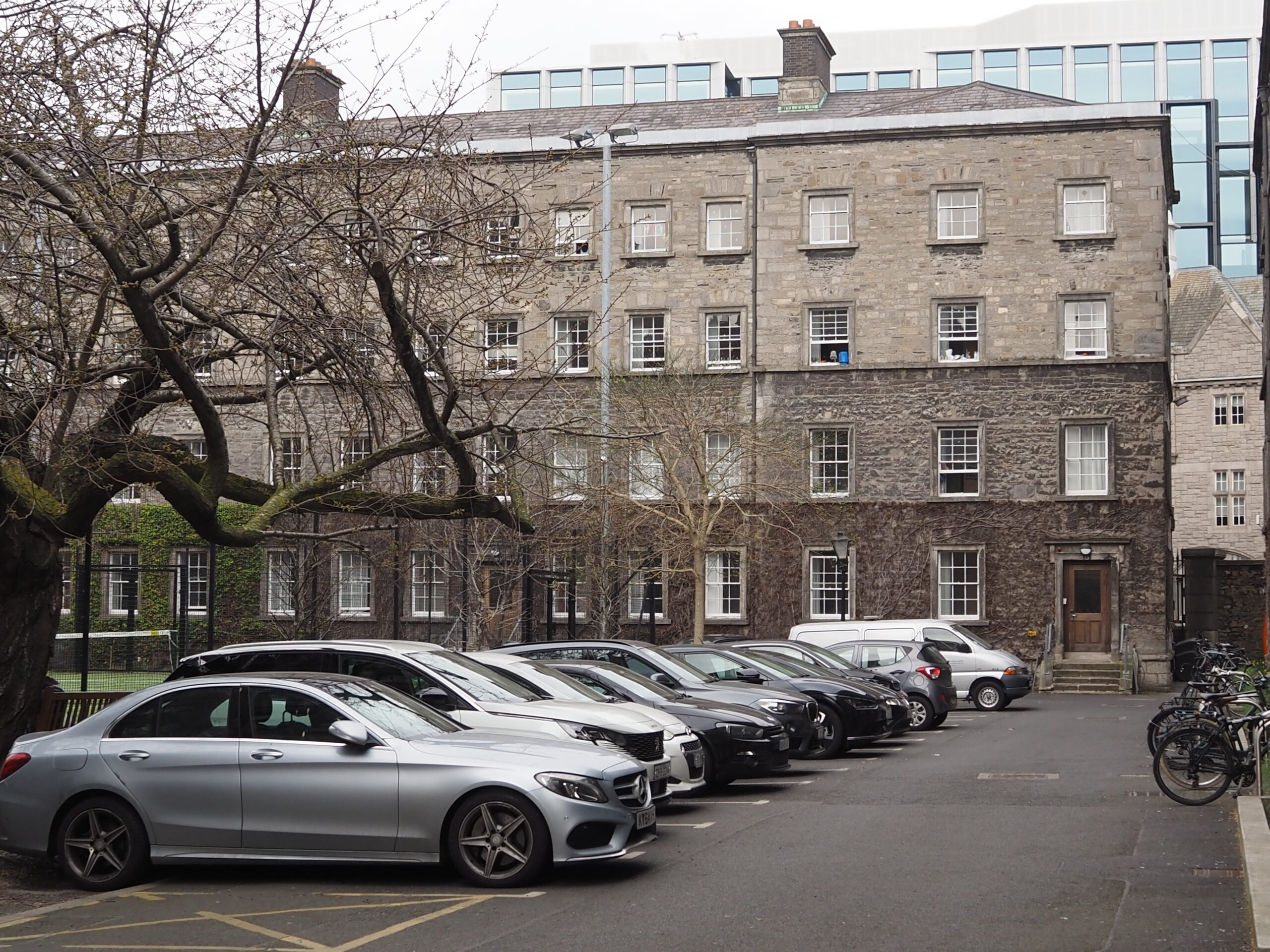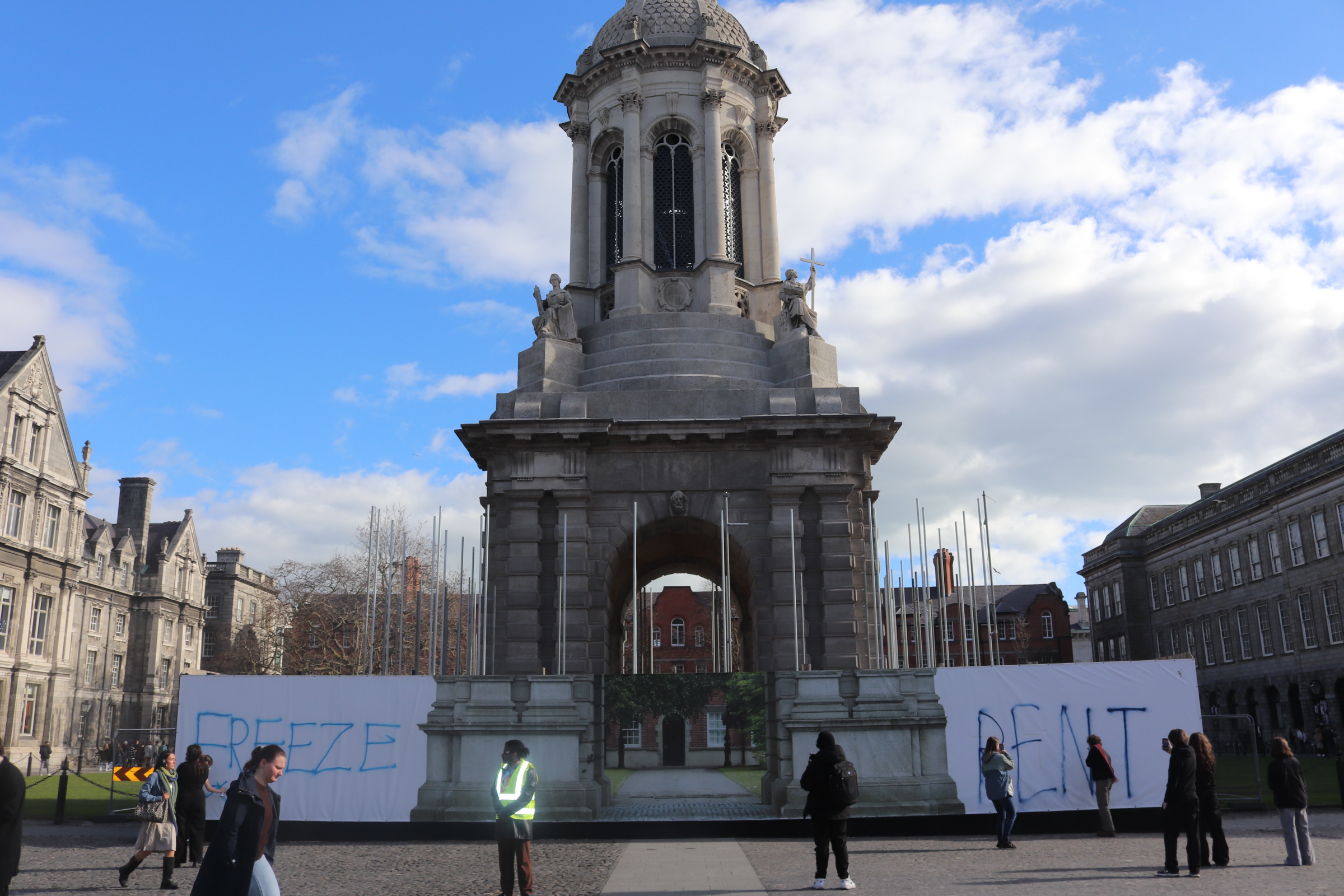One of Ireland’s newest political parties, Renua Ireland, has plans to form an official society in Trinity, though has struggled to gain the number of signatures necessary to begin the process.
Launched in March of this year in Trinity’s Science Gallery, Renua is a centre-right party, with a specific focus on entrepreneurship and equality of opportunity. Founded by Trinity law graduate Lucinda Creighton, the party has experienced an underwhelming reaction from the public as a whole since its establishment. However, this new venture is seen as an opportunity to engage with the student population in an attempt to kick-start the party’s election drive.
Renua manned a pop-up stand in the Arts Block during Freshers’ Week as they sought the 200 signatures necessary to form an official society on campus. Similar to the party itself, the group which hopes to become Renua’s student society, has endured a mixed response with only half of the required total of 200 signatures collected. Until an official society can be established, the party must operate without a cohesive organisational structure. Speaking to The University Times earlier this week, Renua’s youth officer, Samuel O’Connor, said, however, that he is confident that Renua “will get the 200 in the next week or two”. Interestingly, O’Connor does not want to form a parallel youth branch of the party, such as Young Fine Gael or Ógra Fianna Fáil – a system which he says is used by other parties to corral the opinions of students. Student members of Renua will have an equal say in party policy as other members, something which O’Connor says is “radically different from other parties”.
At the forefront of Renua’s campaign to establish a society has been third-year law student Sean-Pat Dunne, the party’s student spokesperson in Trinity. Despite the initial difficulties in collecting the signatures, Dunne has told The University Times that he has received many requests from students looking to get involved at an organisational level. He does admit however, that he found it “shocking” the amount of students who refused to sign the petition. He further noted that he did not think that forming the society will be “as easy as the other political parties have found it”, a reference to the recent progress of the Social Democrats in establishing a Trinity society, who achieved a figure of more than 230 signatures over the course of Freshers’ Week. The Social Democrats have also said that they will not form a youth wing.
Renua joins an already crowded field of student politics societies on campus who vie for memberships, and with Young Fine Gael as the largest party in Trinity, it is difficult to see where the support for a further conservative, centre-right party will come from. Despite an absence of clear policy objectives at a national level, Dunne describes Renua as “the only party that is looking to help entrepreneurs and start-ups”, something that he believes will entice students to the party. In Renua’s policy document, there is only a total of two sentences devoted to education. O’Connor conceded that the party’s policies had not yet been finalised, but sees this an opportunity for students who join the party to “input directly into the policy development”. He added that “education will be dealt with comprehensively by the time of the general election”.
Party leader Lucinda Creighton’s split from Fine Gael, which ultimately lead to the establishment of Renua, came about when she voted against the government on the abortion bill. In Trinity, where 73 per cent of voters favoured a pro-choice mandate in a Trinity College Dublin Students’ Union referendum, Creighton, as the undoubted face of the party, may not enjoy widespread support. O’Connor pointed out that “it is not up to any party to set the agenda on these issues when they effect people so deeply”. He added that Renua Ireland “has an open position on issues such as abortion” and that “if a pro-life student wants to join or a pro-choice student wants to join they can do so in the knowledge that they will be able to express their own opinion, they will be able to decide for themselves”. Dunne stated that Creighton “went with her own morals” in making her decision and he believes that Trinity’s students are in a position to do the same. This is in line with Renua’s policy on its members voting in accordance with their own personal views on questions of conscience, something which Dunne believes “stops the radicalisation of the party”. He did add however, that “there are greater issues” than the examples he gave of repealing the eighth amendment and gay marriage.
Though the group expects to collect the total of 200 signatures by next week, the reaction thus far has been less than encouraging for its supporters. Whilst political plurality should always be welcomed, Renua’s plans to build a society here in Trinity seems to be receiving the same indifferent reaction as suffered by the umbrella party at a national level.
Correction: 22:01, Oct 2, 2015
An earlier version of this article incorrectly said that 73 per cent of students voted in favour of a pro-choice Students’ Union mandate. In fact, it was 73 per cent of voters in a referendum (or 2,812 students) who favoured the union taking a pro-choice stance.







